Scotland's Wembley exploits deliver heroes and villains
- Published
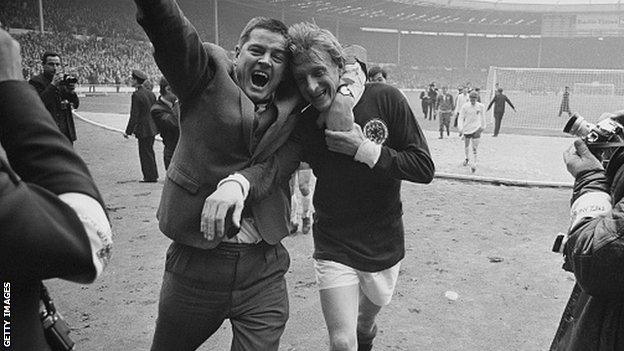
Denis Law celebrates Scotland's famous victory at Wembley in 1967
When Gordon Strachan's side takes to the field on Friday evening, it will be Scotland's 49th competitive fixture against England at Wembley.
The decades have delivered 15 Scottish victories (and 23 defeats) and a succession of triumphant and heartbreaking moments.
Of the Scotland players to have represented their country at Wembley, some can be set apart as heroes and villains.
Heroes 1: Wembley Wizards
The Scotland team of 1928 delivered the most emphatic victory over their old rivals, winning 5-1 to earn a lasting note of distinction. It remains a performance encapsulated as quick, skilful, small Scottish players outfoxing their bigger, stronger, more cumbersome opponents.
Certainly, the Scotland strikers were too nimble in the movement and their thinking to be quelled. Alex Jackson became the first player - and still the only Scot - to score a hat-trick against England at Wembley, while Alex James added two further strikes.
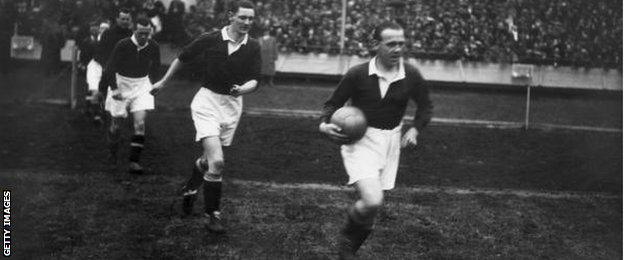
Scotland captain Jimmy McMullan leads out his team ahead of a 5-1 victory for the Scots at Wembley in 1928
At the end of the game, the Scotland goalkeeper Jack Harkness stuffed the match ball up his jersey and it now has a place in the Scottish Football Museum at Hampden, while generations of Scottish fans are still aware of the scoreline at least, if not the details of the players and their individual efforts.
The team that day in March 1928 was: Harkness, Nelson, Law, Gibson, Bradshaw, McMullan, Jackson, Dunn, Gallacher, James, Morton.
Heroes 2: Jim Baxter
When Scotland defeated England 3-2 in 1967, the nation clung triumphantly to the notion that they could call themselves the unofficial world champions. It was, in so many senses, a typically Scottish win.
The team failed, after all, to qualify for the World Cup in England the previous year, but then mustered the wherewithal to beat the side that lifted the trophy. The performance was impressively assertive, but individuals wanted to gild it, so instead of a larger winning margin the game is remember for a moment of aplomb.
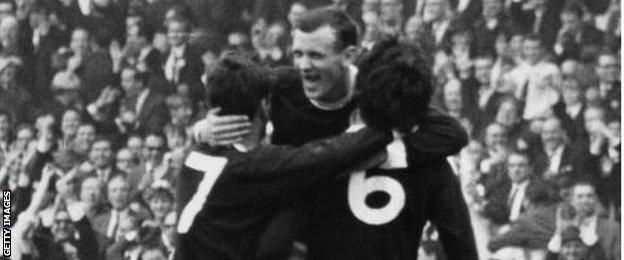
Willie Wallace, Bobby Lennox and Jim Baxter soak up Scotland's 1967 triumph at Wembley
Jim Baxter's keep-uppy - an expression of almost casual disdain for the opponents - has become iconic. He would have gloried in it, but the piece of skill was also something of a disservice to him, since Baxter controlled so much of the game for Scotland with his accomplishment and authority of the ball.
Scotland's victory was achieved by goals from Denis Law, Bobby Lennox and Jim McCalliog, but it was Baxter's strutting arrogance that was the spirit of the win.
Heroes 3: Don Hutchison
Scotland's chances were already written off when the team arrived in London to play the second leg of the Euro 2000 play-offs. England's 2-0 win at Hampden days before had diminished Scotland's hopes and brought increasing pressure to bear on the manager Craig Brown.
His team, though, was physically and mentally assertive enough to wrong-foot England. Barry Ferguson, at just 21 years old, was influential in midfield, but the match-winner - from a Neil McCann cross - was Don Hutchison, who's tall, imposing figure was so effective for Scotland.
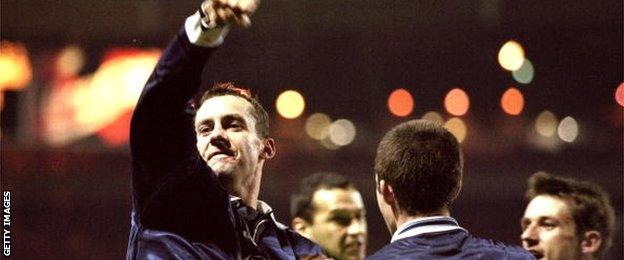
Don Hutchison (left) celebrates after giving Scotland the lead at Wembley in 1999
The attacking midfielder galloped into the penalty area to meet McCann's cross and guide the ball past the England goalkeeper David Seaman. Scotland might even have prevailed overall if Christian Dailly had not been denied by a brilliant Seaman save late on, but instead it was Hutchison's header that became the defining moment.
Villains 1: Frank Haffey
No Scottish goalkeeper has been portrayed as more hapless than Haffey. It is not entirely fair, since his career was about more than the game at Wembley in 1961 when he conceded nine goals to England.
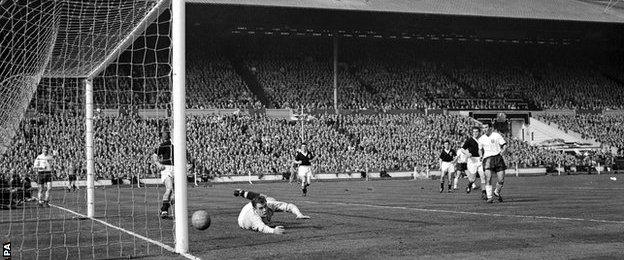
Scotland goalkeeper Frank Haffey conceded nine goals in a match against England at Wembley in 1961
Haffey spent seven years at Celtic, but he is best remembered for the second of his two caps and a 9-3 defeat. He was the fourth choice goalkeeper for Scotland that day in April 1961, and Tottenham's Bill Brown, Airdrie's Lawrie Leslie and Hibs' Ronnie Simpson might all have later reflected on what might have happened if each of them hadn't been ruled out through injury.
Haffey was not solely to blame for Scotland's worst defeat to England - the home side were brilliantly served by Johnny Haynes, who scored twice, and the peerless Jimmy Greaves, who grabbed a hat-trick - but there was an air of insecurity and eccentricity to his play that contributed to a post-match reaction that singled Haffey out for blame.
He continued to play for Celtic until 1965, then spent a short spell at Swindon before leaving for a new life in Australia, where he turned his hand to comedy.
Villains 2: Scotland fans
The 1977 victory over England at Wembley, when Gordon McQueen and Kenny Dalglish scored in a 2-1 win, ought to be remembered for the right reasons. It has become another iconic moment for Scotland, although more for the misbehaviour of the travelling fans.
After the final whistle, a pitch invasion by the Tartan Army ended up with clods of turf being torn up and, most famously, the crossbar of one of the goals being broken, although there was no air of menace - the mood was one of celebration.
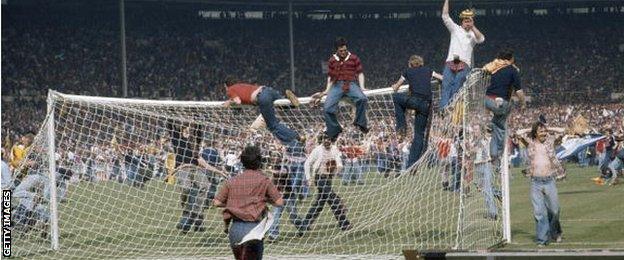
Scotland fans broke the crossbar as the celebrated a 2-1 win over England at Wembley in 1977
"If fans continue to behave like this, then legislation will have to bring in such severe restrictions that football grounds will end up looking like fortresses," said Frank McElhone, the under-secretary of state at the Scottish Office.
For Scots, it remains a moment of celebration, but it has come to overshadow the victory that preceded it.
Villains 3: Gary McAllister
Scotland were a goal down to England at Wembley in 1996 when the pivotal event happened. The visitors were in a period of ascendancy and felt as though the game was turning in their favour when Gordon Durie was brought down inside the penalty area.

Gary McAllister is distraught after seeing his penalty saved against England at Euro '96
When the referee pointed to the spot, McAllister stepped up to take the responsibility but as he competed his run-up, the ball moved on the spot.
McAllister was already committed to his kick, and his effort was saved by David Seaman. Moments later, Paul Gascoigne broke upfield to score a second England goal and knock Scotland out of Euro 96.
"After I'd taken it, all I could think about was that if I'd scored we'd have gone on and won the game," McAllister later said.
- Published9 November 2016
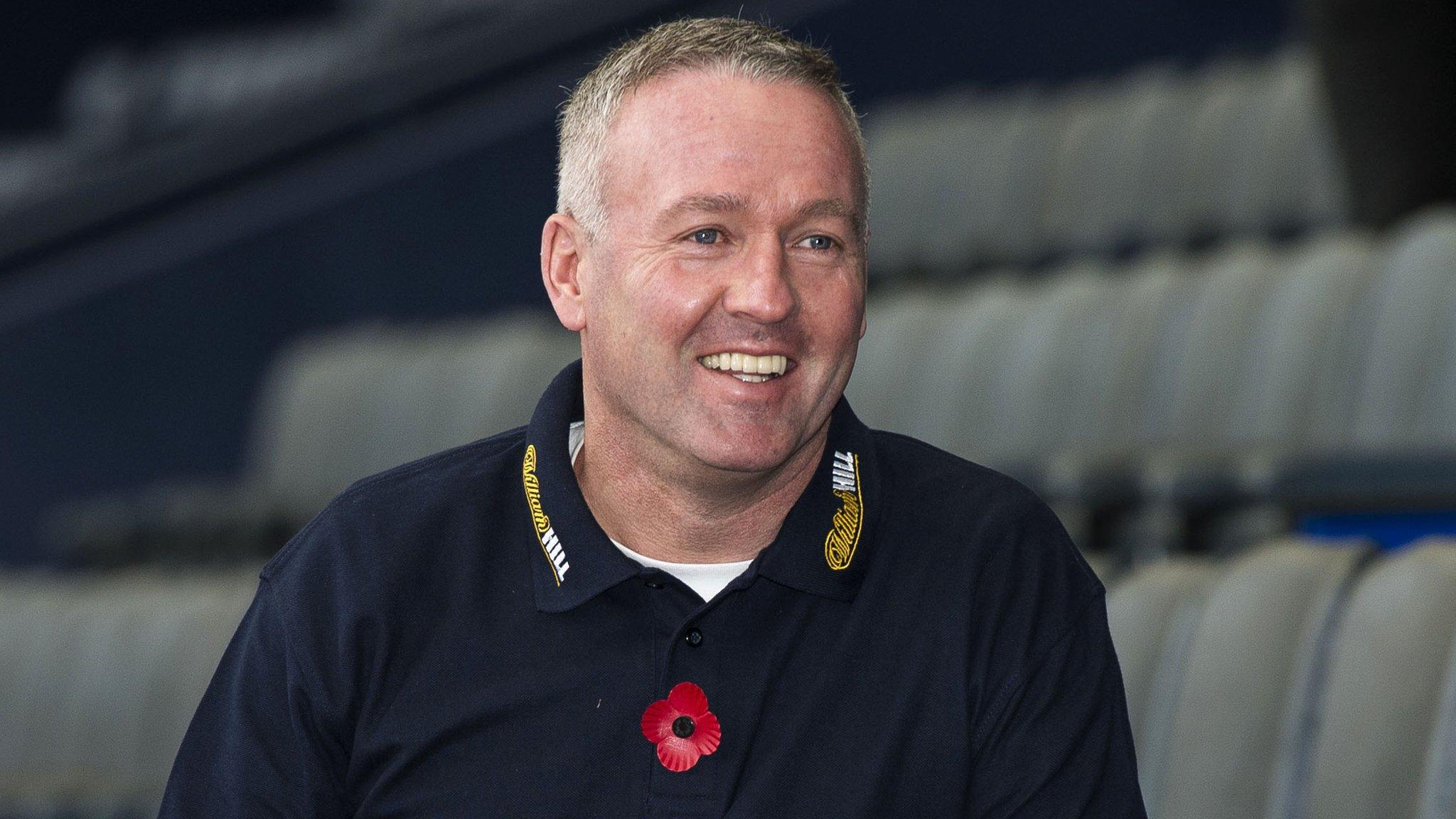
- Published9 November 2016
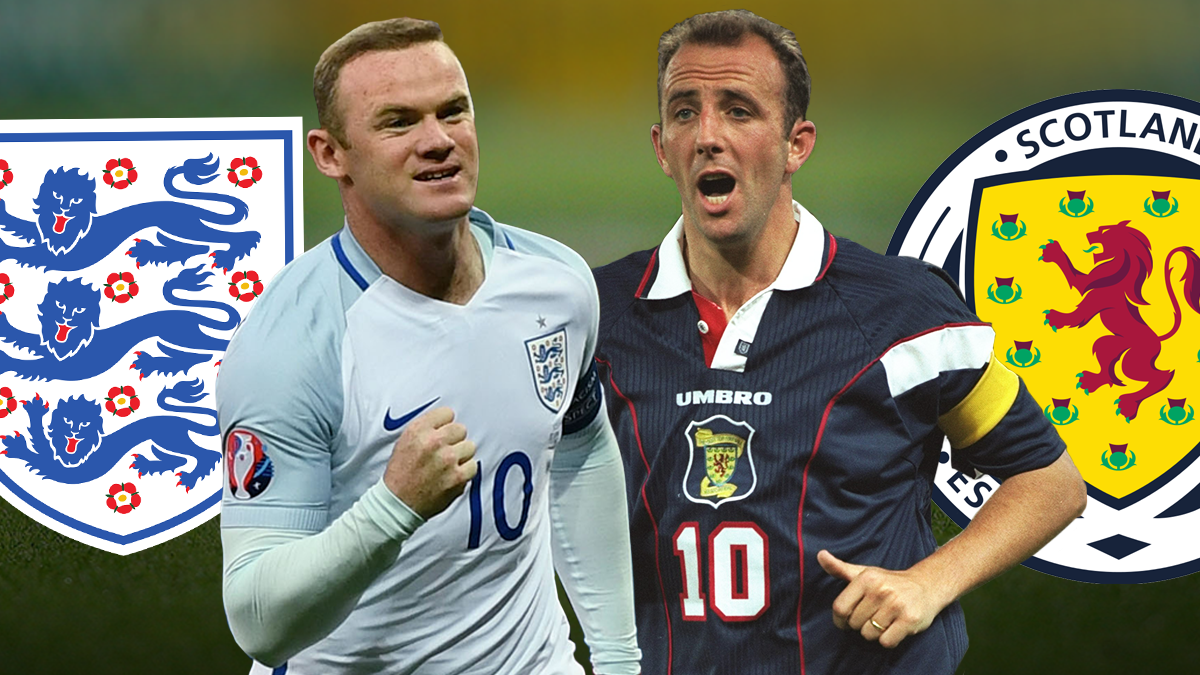
- Published8 November 2016